MTSU kicked off its Constitution Week festivities with a demonstration of how “civic engagement” also can be “civil engagement.”
Representatives of three diverse activist groups discussed the connection between state legislatures and national issues in “State Legislatures Shaping the Nation: Tennessee Law and National Civic Culture,” a panel discussion conducted Sept. 13 before an in-person and livestream audience in Tucker Theatre.
A replay of the 75-minute discussion is available here.
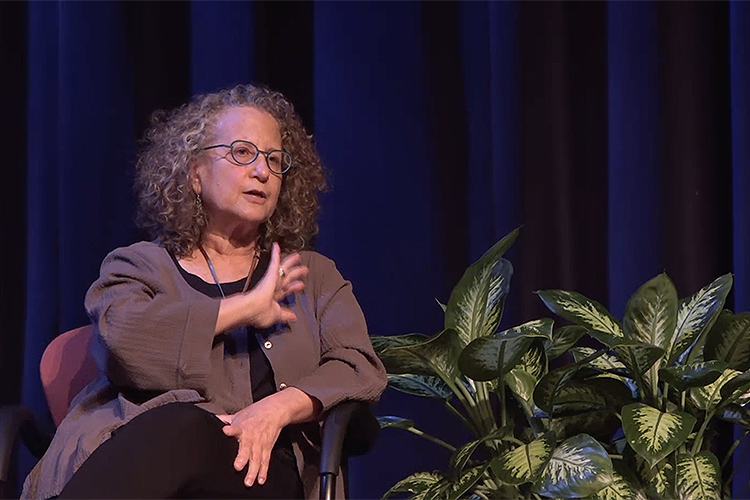
American Civil Liberties Union of Tennessee Executive Director Hedy Weinberg, one of three panelists for “State Legislatures Shaping the Nation: Tennessee Law and National Civic Culture,” makes a point during the discussion conducted Monday, Sept. 13, before an in-person and livestream audience from Tucker Theatre. (MTSU Livestream screen grab)
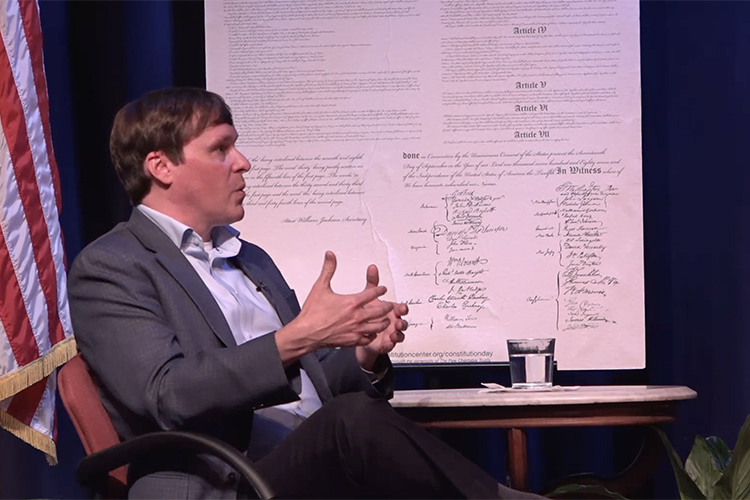
Justin Owen, Beacon Center of Tennessee president and CEO as well as an MTSU alumnus, speaks during a three-member panel discussion of “State Legislatures Shaping the Nation: Tennessee Law and National Civic Culture,” conducted Monday, Sept. 13, before an in-person and livestream audience from Tucker Theatre. (MTSU Livestream screen grab)
Two of the participants, American Civil Liberties Union of Tennessee Executive Director Hedy Weinberg and Beacon Center of Tennessee President and CEO Justin Owen, explained that, while they are on opposite sides of many issues, they work together on criminal justice reform.
“We now have a track record of some pretty serious reforms that will help people coming out of prison return to their communities and become productive citizens,” Owen said.
Owen, an MTSU alumnus, cited this work as an example of how activists can be productive at the state legislative level in ways they never could have the same impact at the federal level.
Toward that end, Weinberg stated her position on voting rights reform and her desire to see barriers to ballot box access removed in order to facilitate greater citizen involvement at the local and state level.
“One in five black individuals (in Tennessee) are not able to vote, and it’s solely because they have a felony conviction which, even though they’ve completed their prison sentence, they maybe have not completed parole and probation,” Weinberg said. “But, typically, it’s because they haven’t been able to pay back their fines and fees.”
The panelists also discussed the timely state-federal connection of congressional redistricting based on the latest data from the U.S. Census Bureau. Panelist Shanna Singh Hughey, president of Think Tennessee, said that, while her nonpartisan organization takes no positions on the way districts are drawn, a transparent process is essential.
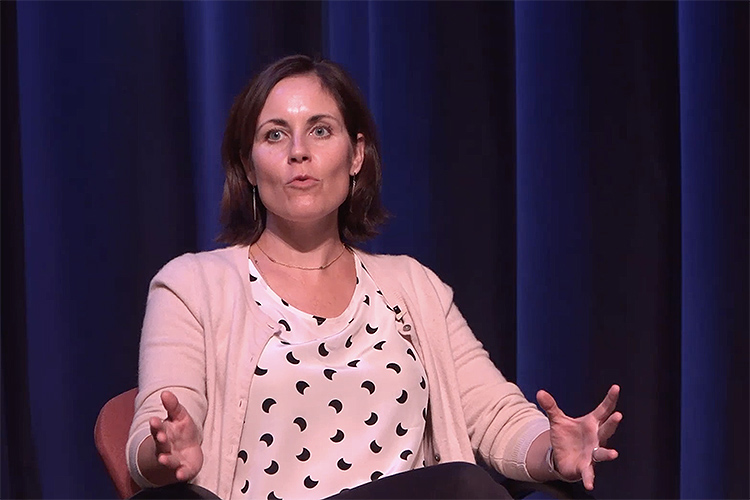
Shanna Singh Hughey, president of Think Tennessee and one of three panelists for “State Legislatures Shaping the Nation: Tennessee Law and National Civic Culture,” speaks during the discussion conducted Monday, Sept. 13, before an in-person and livestream audience from Tucker Theatre. (MTSU Livestream screen grab)
“We all have a sense of what our community is, and when we can share that with the General Assembly, we can help ensure that we’re kept together,” Hughey said. “When general assemblies split communities apart, even unintentionally, it tends to diminish the power of a community to advocate for itself.”
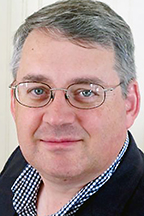
Dr. Louis Kyriakoudes
Moderator Louis Kyriakoudes, director of MTSU’s Albert Gore Research Center, hailed the panelists’ conversation as an example of how an exchange of ideas can be free of rancor, even in a politically charged atmosphere.
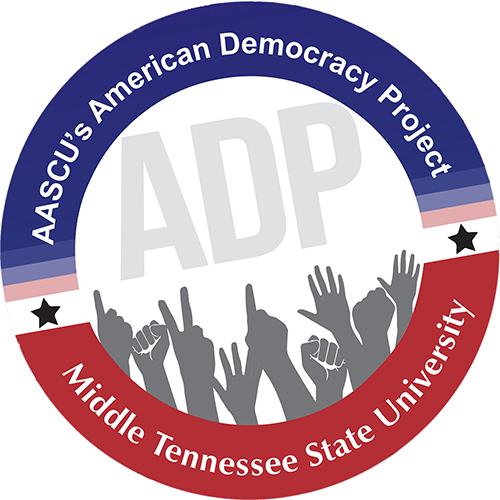
“One of the functions of events like this is to delve into policy differences and work them out rationally with evidence and with civilized procedures because the alternative to politics, messy as it is, is very unpleasant,” Kyriakoudes said.
Constitution Week activities continue on campus through Friday, Sept. 17, the 244th anniversary of the adoption of the country’s foundational document by delegates to the Constitutional Convention in Philadelphia, Pennsylvania.
For complete Constitution Week event information, go to https://www.mtsu.edu/amerdem/Const_Day.php.
— Gina K. Logue (gina.logue@mtsu.edu)
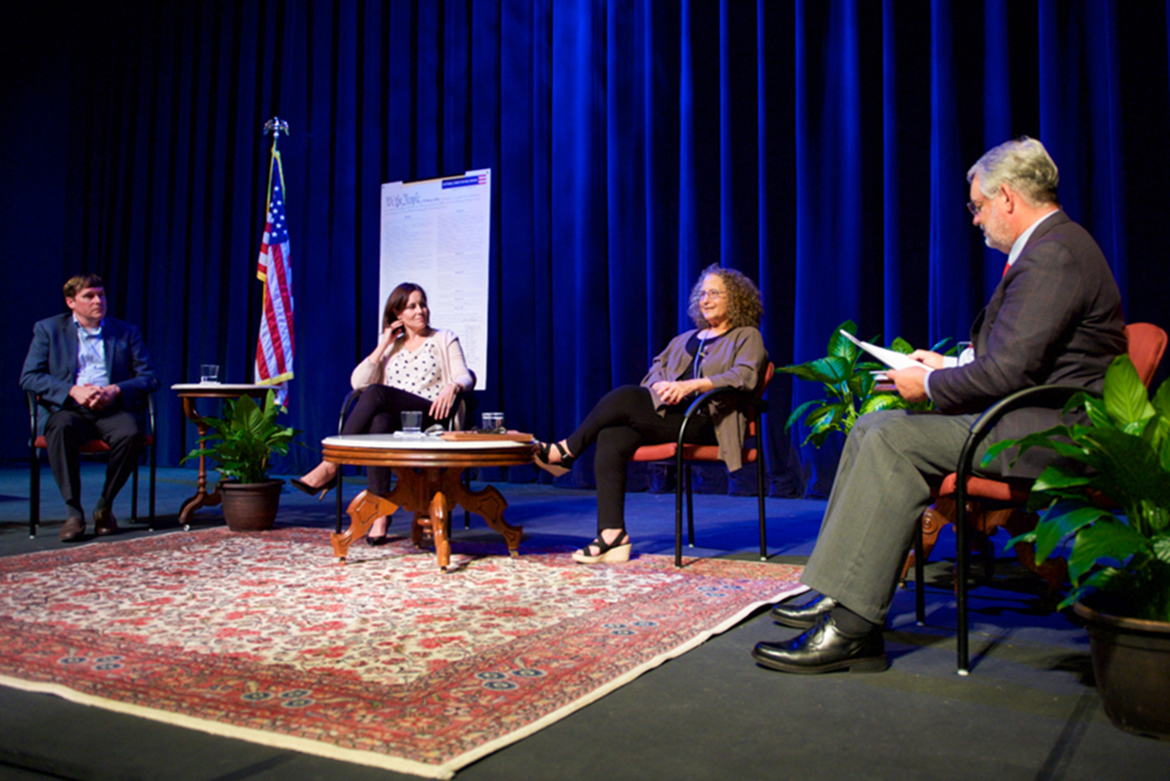
Dr. Louis Kyriakoudes, right, director of the Albert Gore Research Center, moderates a discussion titled “State Legislatures Shaping the Nation: Tennessee Law and National Civic Culture” Sept. 13 at Tucker Theatre as part of MTSU’s Constitution Week celebration. Participants are, from left, Beacon Center of Tennessee President and CEO Justin Owen, Think Tennessee President Shanna Singh Hughey, and American Civil Liberties Union of Tennessee Executive Director Hedy Weinberg. (MTSU photo by James Cessna)

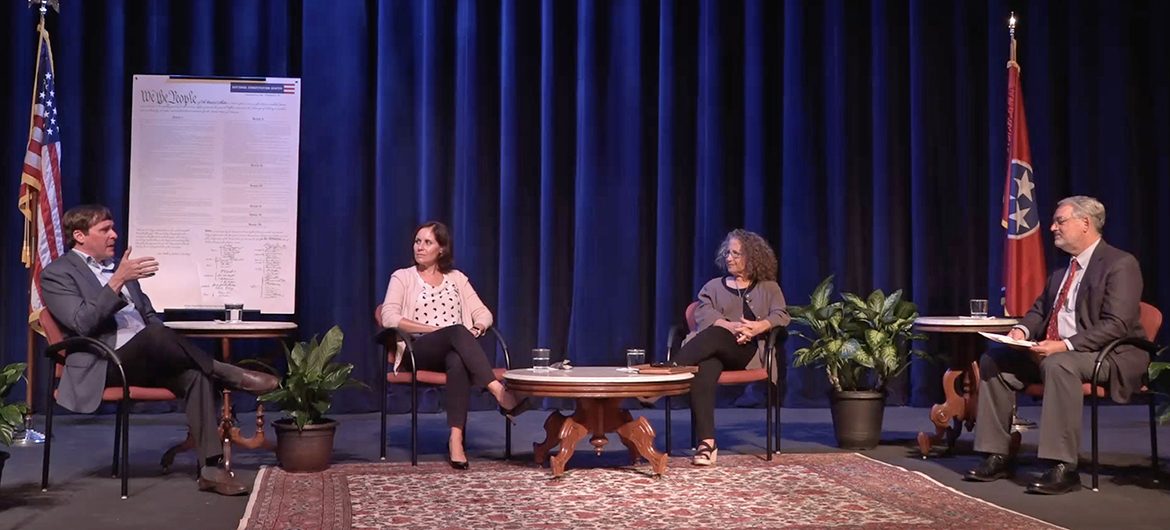

COMMENTS ARE OFF THIS POST